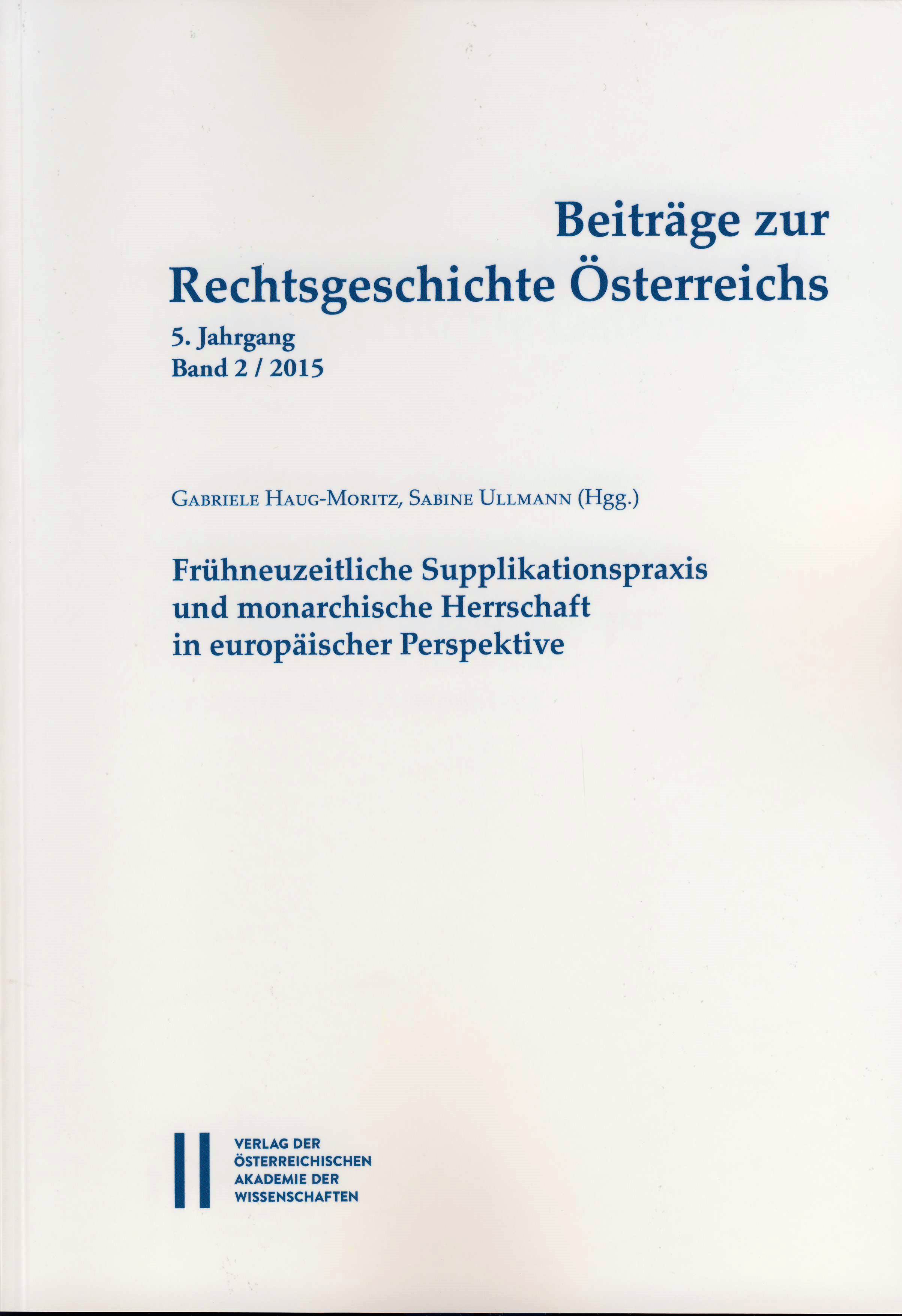
Beiträge zur Rechtsgeschichte Österreichs 2 / 2015, pp. 263-282, 2015/12/11
Frühneuzeitliche Supplikationspraxis und monarchische Herrschaft in europäischer Perspektive

Research into petitions of mediate subjects pending before Emperor Rudolf II’s Aulic Council (1576–1612), which is currently carried out by a joint German-Austrian project, raises the question whether the astonishing amount of applications addressed directly to the Emperor by supplicants who were only indirectly submitted to his jurisdiction is a peculiarity of Rudolf’s reign or part of a broader history. Drawing on the resolutions’ protocols of the Imperial Aulic Council and related sources, the article argues that already half a century earlier, Emperor Charles V was confronted with at least about the same number, if not more, of such documents, which became an important task of Charles’ Aulic Council. Quantitative analysis shows that most of them were either applications for one of the many favours the Emperor was entitled to dispense to various individuals (e.g. privileges), or brought forward by persons involved in conflicts who asked for the Emperor’s assistance. The majority of the latter did not intend to institute legal proceedings, but appealed to the Emperor as a guardian to ensure the ordinary course of justice could be followed and undue hardship avoided.
Keywords: Emperor Charles V,Holy Roman Empire, Imperial Aulic Council, petition, supplication, social history